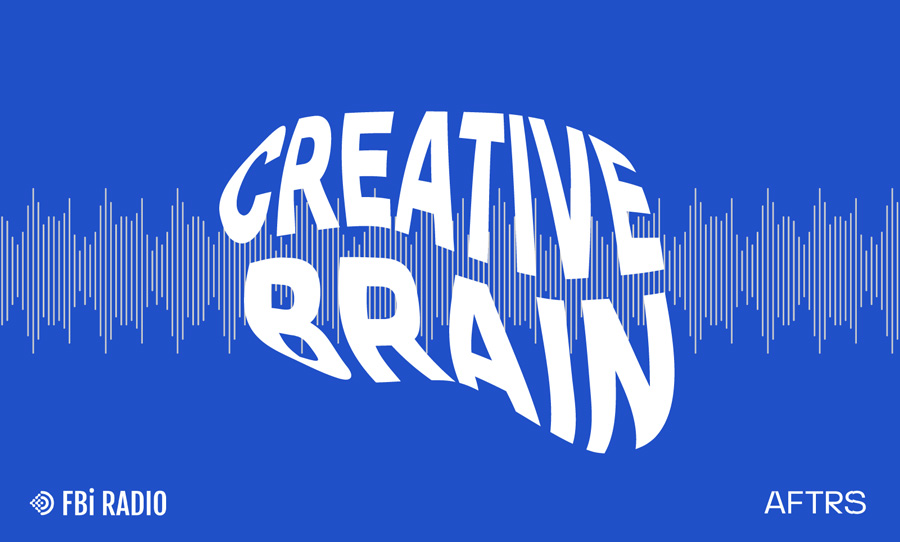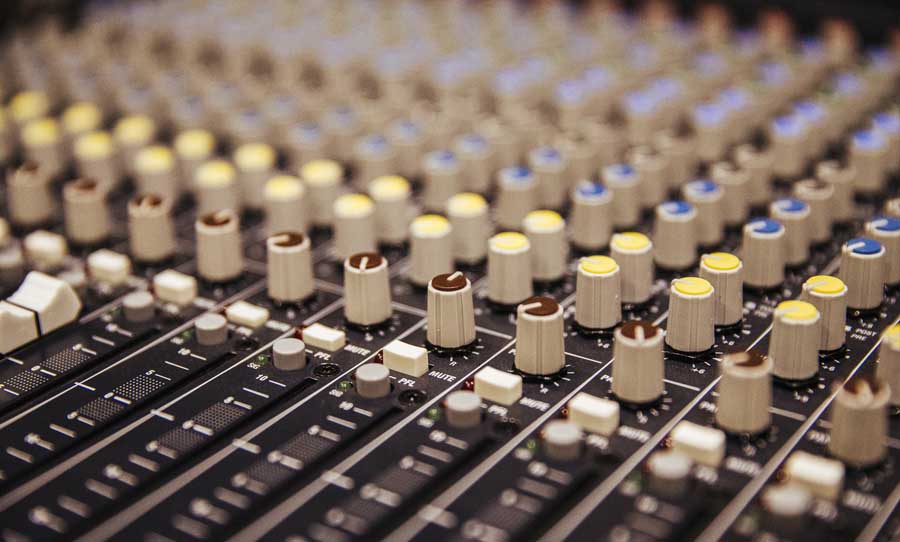Meet Grant Maling, an AFTRS graduate and radio professional. We spoke about his experience finding work in the early stages of his career, and scored some tips you should take to heart if you’re keen to do the same.
Grant Maling is a radio professional who, over the last few years, has worked with Koori Radio, completed a Graduate Diploma of Radio at the Australian Film, Television, and Radio School (AFTRS), and found a posting as the Operations and Promotions Manager and Radio Hunter Valley. And when he finds time outside that busy schedule, he’s been known to share a few tips for anyone else getting into the radio game.
One of the places he’s dropped some knowledge is FBi Radio’s new podcast, Creative Brain. As the first guest on the series, Maling offered up a rundown of his career to date, plus shared some advice for anyone who’s starting in community radio.
We spoke to Grant Maling to find out more about the podcast, his radio career, and to glean some of that wise counsel for ourselves.

HAPPY: Hey Grant, how are things? What are you up to at the moment?
GRANT: Hello, look not the greatest with COVID – can’t wait for it to be over, it’s cancelled nearly all of my plans (as I’m sure it has with most people) and I’ve been reluctant to go back to Sydney to visit family because of it which isn’t good. Aside from that, I’ve been keeping busy with a number of podcasts and side projects, and of course my main job as the Operations/Promotions Manager and Announcer at Radio Hunter Valley in Muswellbrook.
HAPPY: Tell us about this podcast! What’s the elevator pitch?
GRANT: Creative Brain is a series that interviews radio professionals who are succeeding in pushing the audio platform forward, whether it’s in radio, podcast, or other. My episode is about my journey from community radio once a week, to hosting the breakfast show, to AFTRS, to where I am now. It’s about all the things I wish I knew when I was starting out in radio, and how the way that I made it here isn’t the long and hard way, but it also could have been fast tracked a lot earlier. It’s about giving the next generation of radio makers the confidence and insider knowledge of how to get moving on their career.
HAPPY: Were there any grand design ideas you took into it?
GRANT: I was actually a little in the dark about the questions they were going to ask, however I can talk underwater and I knew it was about me and my story so was feeling confident. The main thing I wanted to get across is that it doesn’t matter where you start your career (any career for that matter), it’s about the passion and drive you have to succeed. I also gave a few tips on some little things that I didn’t know when I was at community radio which would have progressed my career a lot quicker.
HAPPY: Mechanically, how does making a podcast differ to working on a more conventional radio show?
GRANT: Traditionally a podcast covers one topic over a longer period of time, whereas radio covers a number of topics in a shorter time space. With that in mind, people who are listening to radio know that if the topic isn’t particularly thrilling a song will come on soon enough to regain their interest – so with podcasts you need to keep the conversation flowing and interesting to keep the listener entertained. Thankfully in this instance I was the interviewee, meaning I just spoke and let the producer edit and work their magic to make me sound interesting, which I genuinely think they’ve done well – between us, I waffled a lot! I do think transitioning from doing a music shift on radio to doing a podcast is particularly challenging because my breaks on air are all less than one minute long, so I find it hard to judge how long I should talk for when answering questions and if it’s still interesting or if I’m saying that same thing over and over again. It’s actually quite similar to my answer to this question… should I stop now?
HAPPY: Have you worked alongside FBi Radio before? What was the experience like?
GRANT: I’ve actually not had much to do with FBi before, they were somewhat my competition when I worked at Koori Radio (another community radio station based in Redfern) but in saying that I think the community radio world is fairly friendly and helpful – I know that we (Koori Radio) worked together with 2SER on various occasions and other people at the station had done projects with FBi. It wasn’t until I went to AFTRS that I met Maria and became more acquainted with FBi and the amazing announcers and producers they have there. Ultimately, when I left Koori Radio I actually reached out to an Aboriginal announcer at FBi to fill in for me till they found a new host for the Brekky Show and she is still there three years later.
HAPPY: You’ve been a student of radio – what are some tips you’d have for anyone looking to start their own podcast, or pitch their own radio show?
GRANT: The main advice I can give is to have a clear idea of what you want to do and how you want it to work, but also be open to suggestions and changes. Know every aspect of the podcast or radio show, from what topics you’ll cover, what type of music you’ll play, the length, are there any guests, who is the target audience, really define what you are trying to sell. Speaking about a radio show in particular, it’s important to have a clear idea as to why and how the show fits in with that radio station. In saying that, rarely will a company take on your idea and make no changes, so be open to some wriggle room to mould the show to fit the branding of the station and possibly make the show pop even more. You’ve got a little more freedom with a podcast, however remember what I said earlier about keeping the audience interested. Today’s generation has a short attention span, you’ve got around 10-15 seconds to hook a new listener and then 3-5 minutes to keep them listening – not based on any stats but my personal belief LOL – so remember to make it captivating and interesting from the get go.
HAPPY: Is a formal education something you’d recommend to anyone looking to get into the field?
GRANT: Definitely! Mainly because the sad fact is, not many people make it in the industry without either having some sort of tertiary education, or going on a reality television show. I think it also helps you prepare for the industry, looking back I don’t think I’d be where I am today, or coping with the workload I have, if it wasn’t for my studies at AFTRS. I also have a Bachelor of Journalism which I don’t really use, but it’s nice to know I can apply for news related jobs if I want to.
HAPPY: Aside from the obvious learning benefits, how did studying at AFTRS help you find your way into a radio career?
GRANT: AFTRS introduced me to a bunch of industry professionals who were super friendly and helpful and would often give you their emails, phone numbers, cards to get in contact and send demos/reels for feedback and possible job opportunities. I know you said aside from the learning benefits, but I think a big thing that helped me get a job in radio is the fact that AFTRS teaches every single aspect of radio, from on air to sales – so when you apply for jobs you can apply for nearly any job and feel confident doing so.
HAPPY: What’s next on the cards?
GRANT: Look, who really knows to be honest, fairly content with where I am at the moment – partly because there’s no jobs going with COVID around anyway. The next move I want to make though is to a capital city or to a networked show which I’m working on but it’s all under wraps at the moment so I can’t give too much away. We’ll just have to wait and see what other surprises 2020 throws at us – AM I RIGHT!?!
Find out more about Creative Brain and listen to Episode #1 featuring Grant Maling here.
AFTRS are currently taking applications for their Master of Arts Screen across a number of disciplines including Music, Sound, Production Design, and more. Applications close on August 31st, check out the details here.



